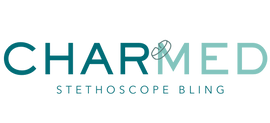Charting Your Course: Thriving in Your New Healthcare Role Post-Medical School
Congratulations! You've successfully completed medical school, a monumental achievement that marks the beginning of your career as a healthcare professional. As you embark on this new chapter, it's important to recognize that the transition from medical school to your first healthcare role can be both exciting and challenging. To help you navigate this crucial phase, we've compiled a guide on how to thrive in your new healthcare role and make the most of the opportunities that lie ahead.
Embrace Continuous Learning
While medical school provided you with a strong foundation, it's essential to acknowledge that learning in the healthcare field is a lifelong journey. As you settle into your new role, commit yourself to continuous learning. Stay up-to-date with the latest medical advancements, attend conferences, participate in workshops, and join professional organizations relevant to your specialty. Engage in discussions with experienced colleagues and mentors, as their insights can prove invaluable in your growth as a healthcare professional.
Develop Strong Communication Skills
Effective communication is a cornerstone of successful healthcare practice. Whether interacting with patients, collaborating with colleagues, or liaising with other healthcare professionals, clear and empathetic communication is vital. Sharpen your interpersonal skills, learn to actively listen, and express yourself in a way that patients and colleagues can easily understand. By fostering open lines of communication, you'll build trust, enhance teamwork, and improve patient outcomes.
Cultivate a Patient-Centered Approach
As a healthcare provider, your primary focus should always be on the well-being of your patients. Strive to cultivate a patient-centered approach that encompasses empathy, compassion, and respect. Treat each patient as an individual with unique needs, concerns, and circumstances. Take the time to actively listen to their concerns, involve them in decision-making processes, and educate them about their conditions and treatment plans. By prioritizing the needs of your patients, you'll build stronger therapeutic relationships and contribute to better healthcare outcomes.
Seek Mentorship and Build a Support Network
The early years of your healthcare career can be overwhelming, and seeking guidance from experienced professionals can provide invaluable support. Find mentors who can offer advice, share their expertise, and help you navigate the challenges you'll encounter along the way. Additionally, build a network of peers who are in similar stages of their careers. Joining professional associations or online communities can connect you with like-minded individuals who understand the unique experiences and pressures you face.
Balance Work and Self-Care
The demanding nature of healthcare can lead to burnout if you neglect self-care. While it's important to be dedicated to your work, remember to prioritize your physical and mental well-being. Take regular breaks, engage in activities you enjoy, and cultivate a healthy work-life balance. Nurture your hobbies, maintain a social support system, and seek professional help if you experience signs of burnout or stress. By taking care of yourself, you'll be better equipped to provide high-quality care to your patients.
A Symbol of Your Journey
Every CharMED charm can be a symbol of your journey – a representation of your accomplishments, interests, or even a loved one. You can choose one that represents your medical specialty, your passions, or simply one that brings a smile to your face during a challenging day. It is a gentle reminder of the personal victories and meaningful motivations that brought you into healthcare.
In conclusion, your journey as a healthcare worker is a blend of professional growth, personal evolution, and a continuous striving to make a difference in people's lives.
Keep shining, keep growing, and let your CharMED stethoscope tell your story.

